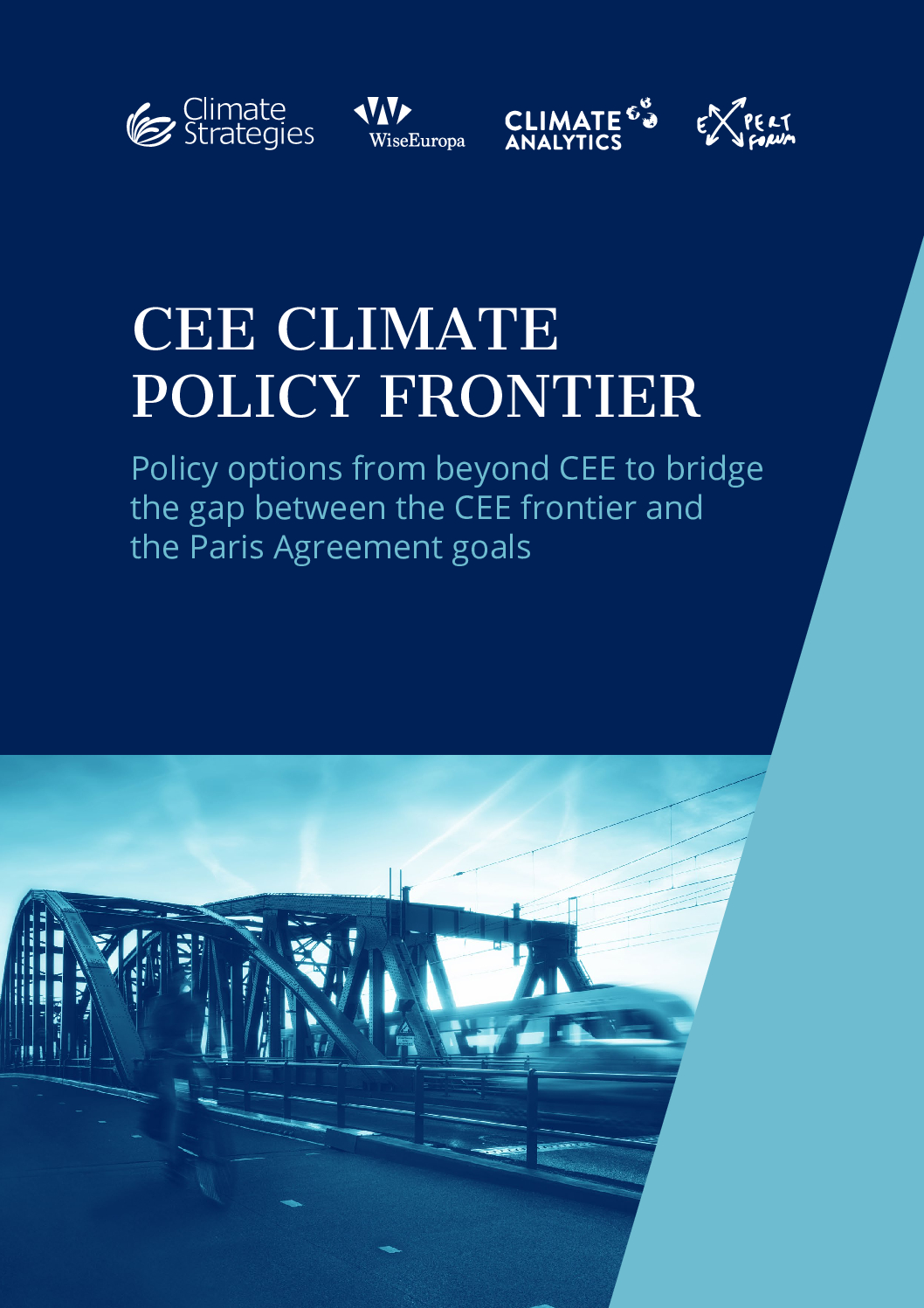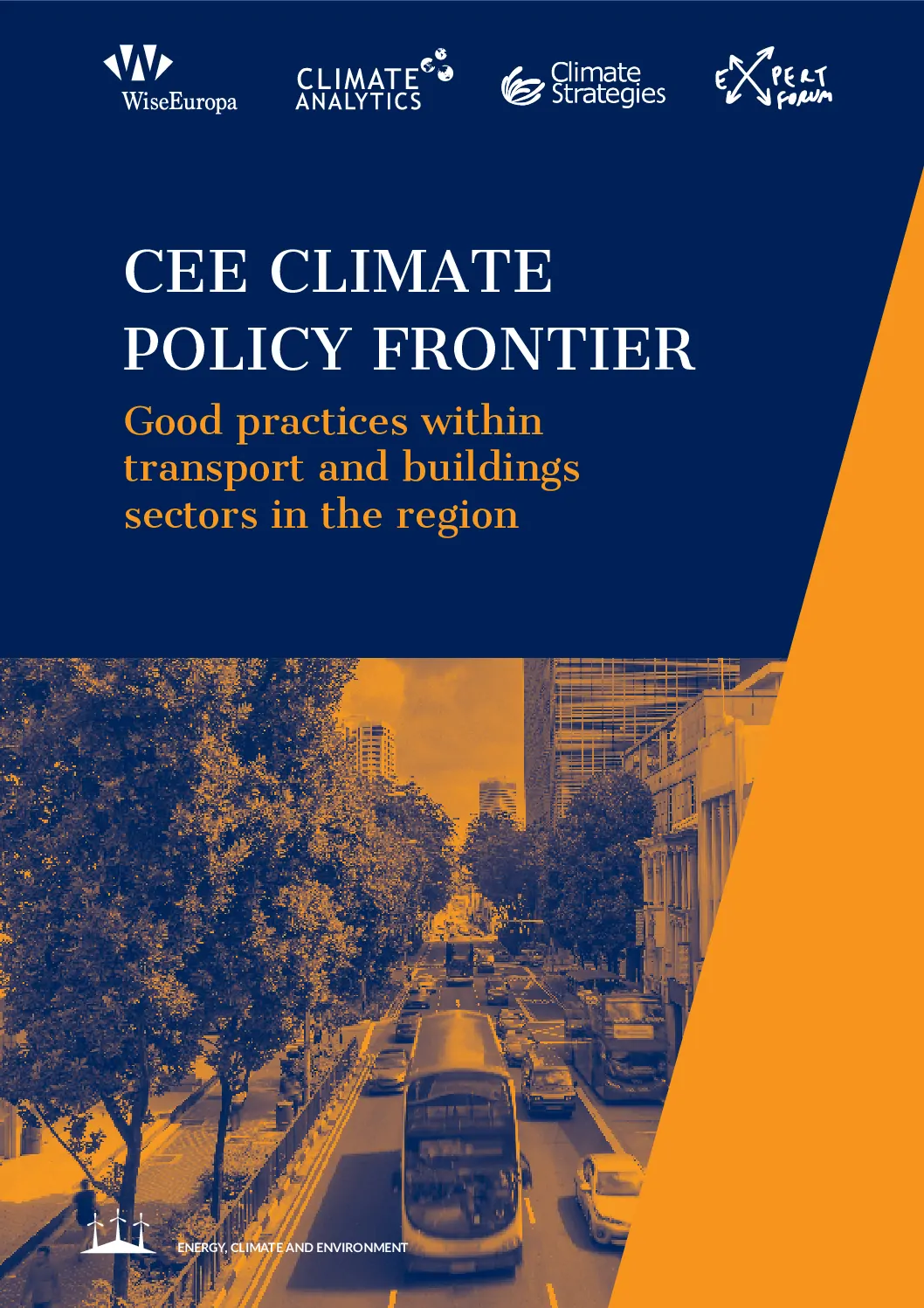CEE Climate Policy Frontier
The project is completed. The project made a tangible contribution to the improvement of sectoral climate policies in the Central Eastern European (CEE) region and at the European scale. It specifically focussed on those policies addressing transport and buildings, two sectors not included in the EU’s Emissions Trading System (ETS).

Project info
Bulgaria, Czech Republic, Germany, Hungary, Poland, Romania, Slovakia
09/18 - 03/20
-
305,000.00 €
Contact info
Aleksander Śniegocki
-
- Climate Analytics gGmbH
- Climate Strategies
- Expert Forum Association
Background
Climate action within the transport and building sectors in the CEE region lags behind that of European frontrunners and behind the overall pace of emissions reduction compatible with the Paris Agreement. Within the region, there are also significant differences in the effectiveness and efficiency of countries’ policy instruments, in terms of both their design and implementation. While knowledge exchange between the CEE countries and the rest of the EU is crucial for solving the climate challenge, the experiences gained by the latter group are often not fully transferable or applicable due to the different socio-economic contexts, institutional differences or historical development pathways. It is therefore necessary to strengthen knowledge exchange within the CEE region. On top of this, the scale and pace of climate action required if the buildings and transport sectors are to stay within the global carbon budget are still not fully recognised. Without both increasing the intra-CEE exchange of current best practices and supporting joint European reflection on further improvements in sectoral policies, there is a risk that progress in this area continues to be piecemeal.
Project
The project facilitated the promotion of best practices for climate action in the selected non-ETS sectors of transport and buildings. It did so by raising national policy-makers’ awareness of the readily-available and transferable solutions already present in the region. Additionally, it fostered discussion on implementation strategies that can enable the region to efficiently reduce emissions from these sectors with the aim of achieving emissions pathways that are compatible with the Paris Agreement.
The project’s goals were achieved over several stages. First, the project identified and promoted current best policy practices within the CEE region. Second, it assessed the gap between these best practices and the level of ambition necessary to ensure global warming remains well below 2°C/1.5°C. Finally, policy options needed to bridge this gap were identified and promoted.
The project’s outcomes supported policy-makers in all beneficiary CEE countries to reach the ‘regional frontier of excellence’ in climate action, while also making this action consistent with the level of ambition required to limit global warming to well below 2°C. Although the project focused on the Central and Eastern European region, it also created a channel for knowledge exchange between the CEE countries and other European states.
Results
- A large number of participants took part in the events, through supported and networked key actors (some ex-ministers and other high-ranking participants). In addition, best practices were exchanged and new policy approaches in partner countries were suggested.
- Through the project, 5 new submissions were stimulated for further funding for ideas developed in the project. This is done with the support of various ministries.
- The project has offered an effective approach to learning from each other and has pursued the comparison with the respective climate policy gaps in the partner countries.
Last update: July 2024


